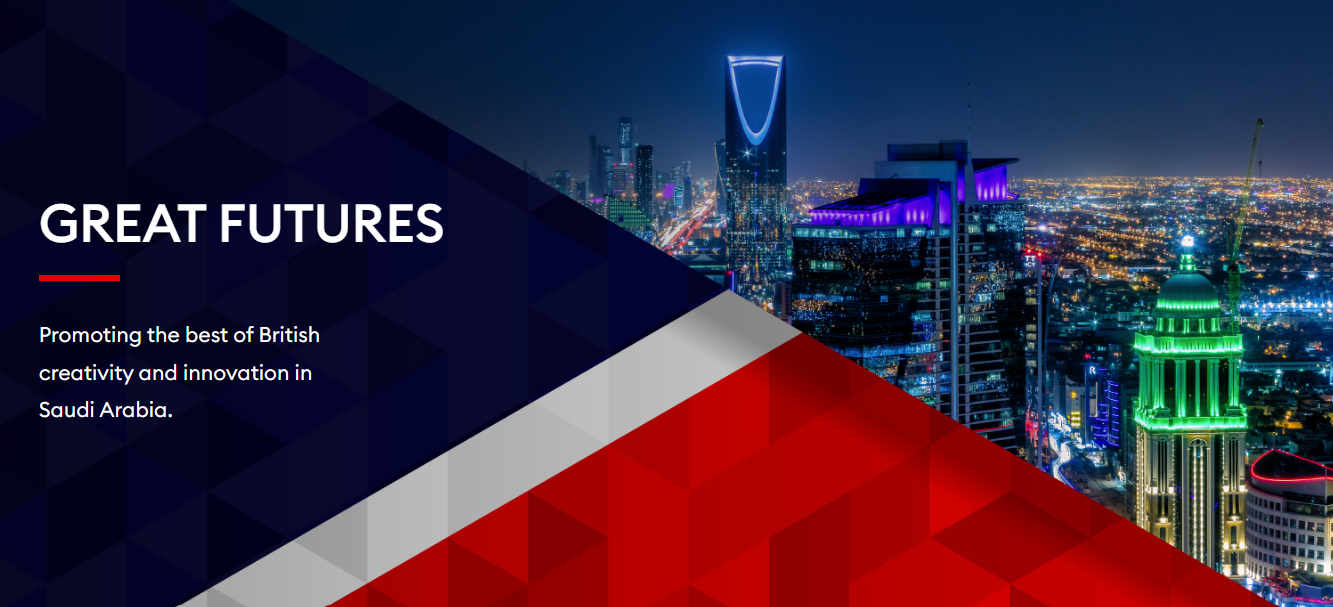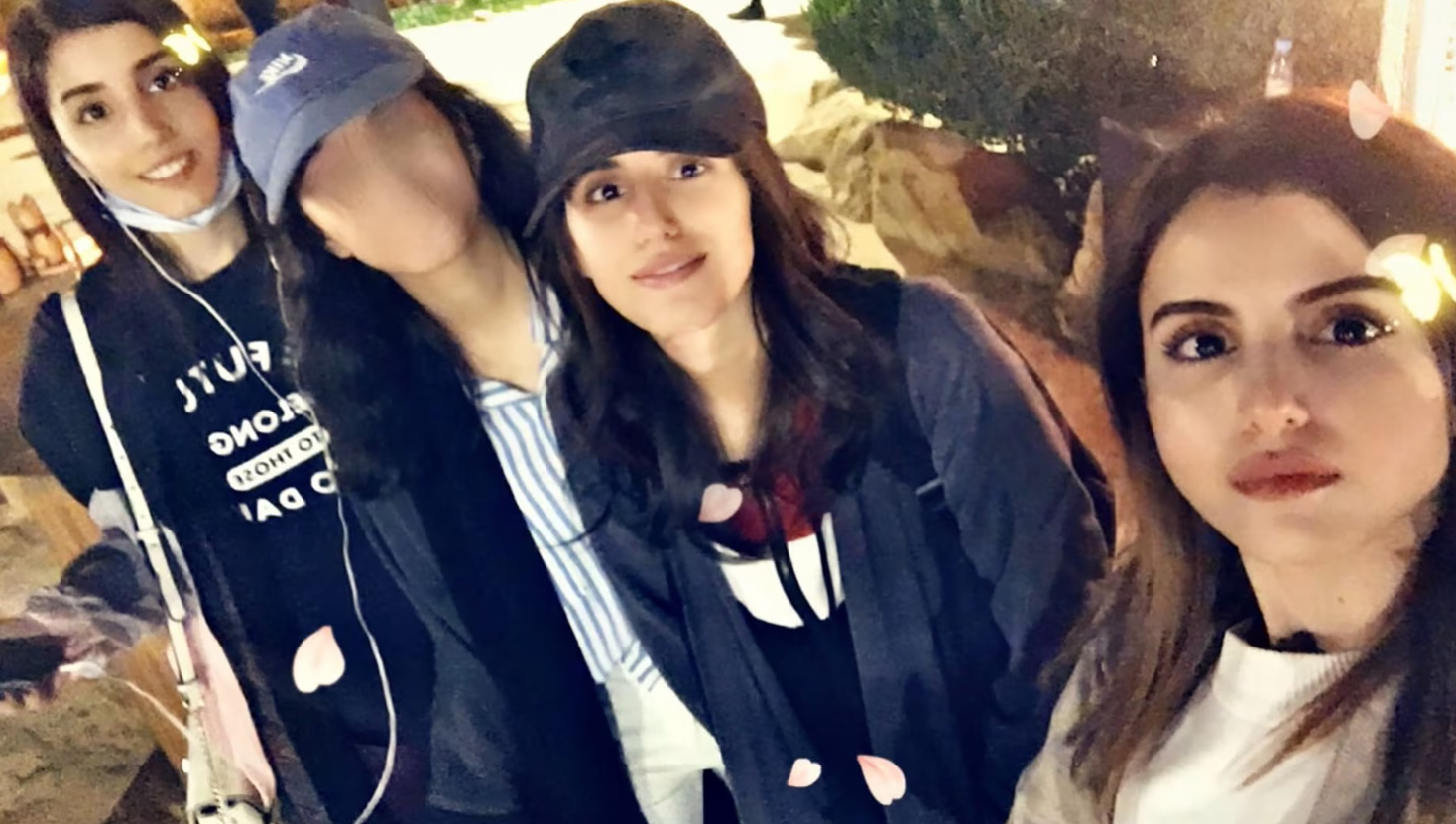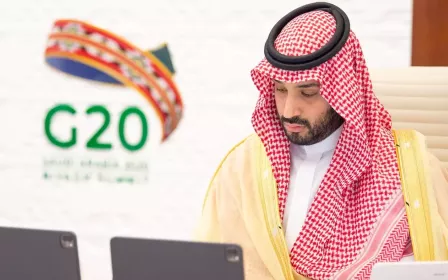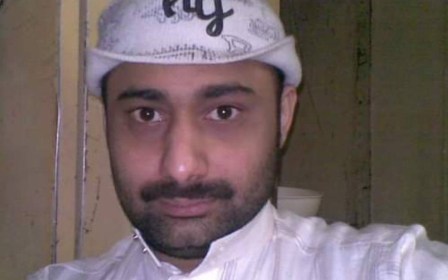UK cultural institutions accused of 'arts washing' over Saudi trade mission

Leaders of British cultural institutions including the Royal Opera House, the National Theatre and the Southbank Centre are set to travel to Riyadh as part of a UK government-backed trade delegation pitching for contracts on lucrative Saudi mega-projects.
The Great Futures Conference is a two-day event organised by the Department for Business and Trade taking place in the Saudi capital on 14-15 May.
It aims to showcase British businesses and opportunities for them in the kingdom linked to Crown Prince Mohammed bin Salman's Vision 2030 projects, including the new city of Neom.
A website for the event said: "This exclusive invitation-only event will gather more than 750 of the UK and Saudi Arabia’s most prominent future-shapers and decision makers across a range of industries. It will be an opportunity for these guests to network and to experience world class creativity and innovation showcasing how UK expertise and excellence can partner to deliver Vision 2030."
The programme for the conference includes a session titled "Theatre, festivals and performing arts" featuring Alex Beard, the chief executive of the Royal Opera House; Kate Varah, the executive director of the National Theatre; Elaine Bedell, the chief executive of the Southbank Centre; and Francesca Hegyi, the chief executive of the Edinburgh International Festival.
New MEE newsletter: Jerusalem Dispatch
Sign up to get the latest insights and analysis on Israel-Palestine, alongside Turkey Unpacked and other MEE newsletters
The director and chief executive of the Science Museum, Ian Blatchford, is also scheduled to attend the conference, where he will be on a panel discussing the future of museums. Earlier this year, the Science Museum Group signed an agreement with Saudi Arabia to create a Museums Hub in Riyadh. The Science Museum has also faced protests from animal rights campaigners and environmental groups for accepting funds from oil companies such as Equinor.
Representatives from Britain's gaming industry, including Chester King, who heads Britain's Esports federation, will also be speaking on a panel in Riyadh to discuss how the UK will support Saudi Arabia's gaming and Esports industry strategy.
The website highlights the potential opportunities for British businesses created by what it describes as "Saudi Arabia's 14 giga-projects", on which it says it is estimated Riyadh will spend approximately $3 trillion on by 2030.
Five key giga-projects
Launched in 2016 by Saudi Crown Prince Mohammed bin Salman, Vision 2030 was created with the aim of diversifying the Saudi economy away from its reliance on oil by 2030.
The five key giga-projects Saudi Arabia is hedging its bets on to grow different sectors include: NEOM, a futuristic megacity; the Red Sea Project, a luxury tourism destination; Qiddiya, an entertainment and sports complex; Amaala, a hospitality and wellness resort; and the Riyadh Metro, which aims to build a metro system in Riyadh.
"Central to the Kingdom’s ‘Vision 2030’ plan are 14 giga-projects, defined by their significant investment size, transformative impact and strategic importance," said the website.
"The opportunities for British ingenuity, skills, services and products to help develop these vast projects are diverse."
Saudi Arabia has faced criticism for forcibly evicting members of the Howeitat tribe to make way for The Line, part of the NEOM project. Last year, UN experts expressed alarm at the imminent risk of execution of three members of the Howeitat tribe after they were accused of terrorism for resisting evictions.
Rights groups have also noted that Saudi Arabia arrested 50 members of the Howeitat tribe for protesting their evictions from land earmarked for NEOM and The Line.
Oliver Dowden, the UK's deputy prime minister, is also expected to attend the conference.
Announcing details of the event last month, Majid bin Abdullah al Kassabi, Saudi Arabia's minister of commerce, said Riyadh was "proud to be hosting" the conference.
"This event heralds the beginning of an extended and productive partnership focused on innovation, technology and our flourishing cultural sectors," said Kassabi.
"We look forward to collaborating with the UK government and the private sector to realise the ambitions of Vision 2030."
But rights groups have raised concerns about the event, accusing participants of “legitimising” Saudi Arabia’s rights abuses.
It comes just weeks after UK Foreign Secretary David Cameron told the House of Lords that the UK government was opposed to "child executions" in the kingdom over concerns for three defendants facing possible death sentences for alleged offences committed before they were 18.
The three defendants have been identified by rights groups as Abdullah Al-Derazi, Abdullah Al-Huwaiti and Youssef Al-Manasif.
Derazi was detained in 2014 off the street and disappeared for three months for protest crimes he is alleged to have committed when he was 17.
Manasif is accused of attending funerals between the ages of 15 and 17 that Saudi Arabia deemed to be a protest with rights groups claiming he was tortured and forced to sign a false confession.
Huwaiti was arrested in 2017 when he was 14 and given the death penalty at 17 after being convicted on murder and robbery charges.
'Three child defendants in Saudi Arabia are at risk of execution and can no longer see a future'
- Jeed Basyouni, Reprieve
Reprieve campaigns for abolishing the death penalty and represents Derazi, Huwaiti and Manasif.
"Whilst UK ministers and their Saudi counterparts gather in Riyadh to discuss their Great Futures, three child defendants in Saudi Arabia are at risk of execution and can no longer see a future," said Jeed Basyouni, Reprieve's head of death penalty, Middle East and North Africa.
"A business event like this only lends legitimacy to a regime which executes child defendants based on torture-extracted confessions."
Saudi Arabia's human rights record also came under renewed scrutiny last week when Amnesty International and ALQST highlighted how a 29-year-old fitness instructor, Manahel al Otaibi, had been sentenced to 11 years in prison for her choice of clothing and public posts in support of women's rights.
According to the campaign groups, Saudi Arabia's Specialised Criminal Court had sentenced Otaibi during a secret hearing on 9 January. But they said the decision became known weeks later in an official reply by the Saudi government to a request for information by UN experts about the case.
James Lynch, co-founder of Fair Square, which campaigns for workers' rights in the Gulf, questioned whether the heads of cultural institutions involved in the conference were ignoring their own ethical policies by attending the event.
“As the leaders of the UK’s top cultural institutions gather for a conference that will lend their legitimacy to the Saudi state, that same government is busy imprisoning women who have asked for the most basic of rights," Lynch told Middle East Eye.
"There are serious questions for these cultural leaders: not least whether seeking partnerships with the Saudi Crown Prince’s gigaprojects really fits with the values their institutions claim to promote, or whether they are participating in a high-level artwashing exercise.”
'That same government is busy imprisoning women who have asked for the most basic of rights'
- James Lynch, co-founder of Fair Square
The UK government's Great initiative, launched in 2011, promotes the country as a destination for trade, investment, tourism, and education, with efforts intensifying since Brexit to strengthen global partnerships and economic ties outside the European Union.
The Soutbank Centre and National Theatre did not respond to requests for comment at the time of publication.
A spokesperson for the Royal Opera House confirmed that its chief executive would be attending the event and said: “We are attending Great Futures as part of a large delegation of British government officials, ministers and other prominent arts and cultural leaders. The visit will showcase the importance of British cultural institutions within our society, highlighting the UK’s leading arts and cultural sector and showcasing how culture can support and encourage economic and societal change.”
The Science Museum also confirmed that Ian Blatchford will be attending the conference. Blatchford defended the Science Museum going to Riyadh and said in a statement: "Internationalism is second nature for the Science Museum Group, both because of the power of cultural engagement and because collaboration between different nations has always been essential to addressing global challenges.
"Our clear view is that there is huge potential to support positive change and reform for people in Saudi Arabia by building science engagement amongst citizens and growing a strong, sustainable museums sector."
A UK Cabinet Office spokesperson said: "The United Kingdom has vital national security and economic interests in maintaining and developing our relationship with Saudi Arabia but no aspect of our relationship prevents us from speaking frankly about human rights. Saudi Arabia is well aware of the UK's opposition to the use of the death penalty."
Middle East Eye delivers independent and unrivalled coverage and analysis of the Middle East, North Africa and beyond. To learn more about republishing this content and the associated fees, please fill out this form. More about MEE can be found here.





